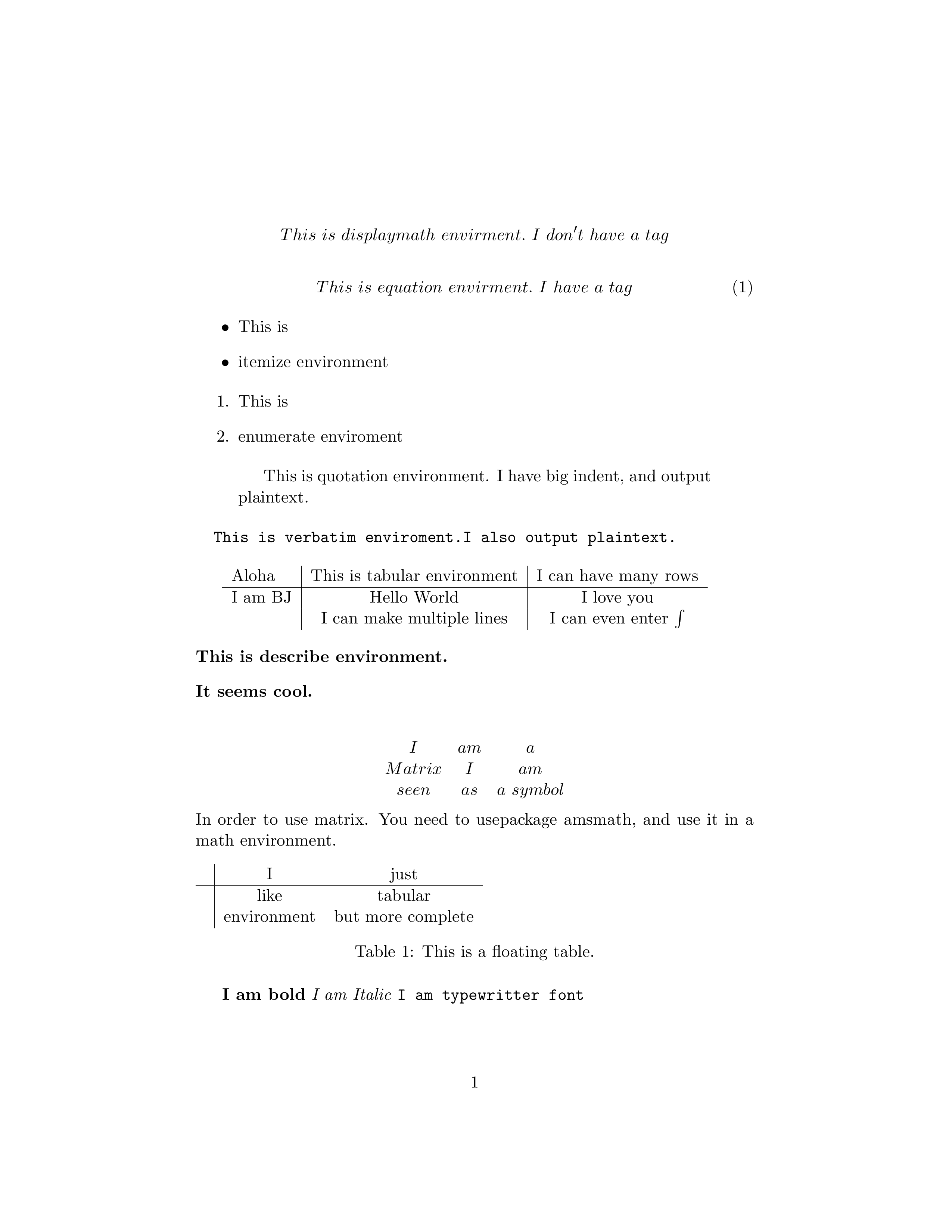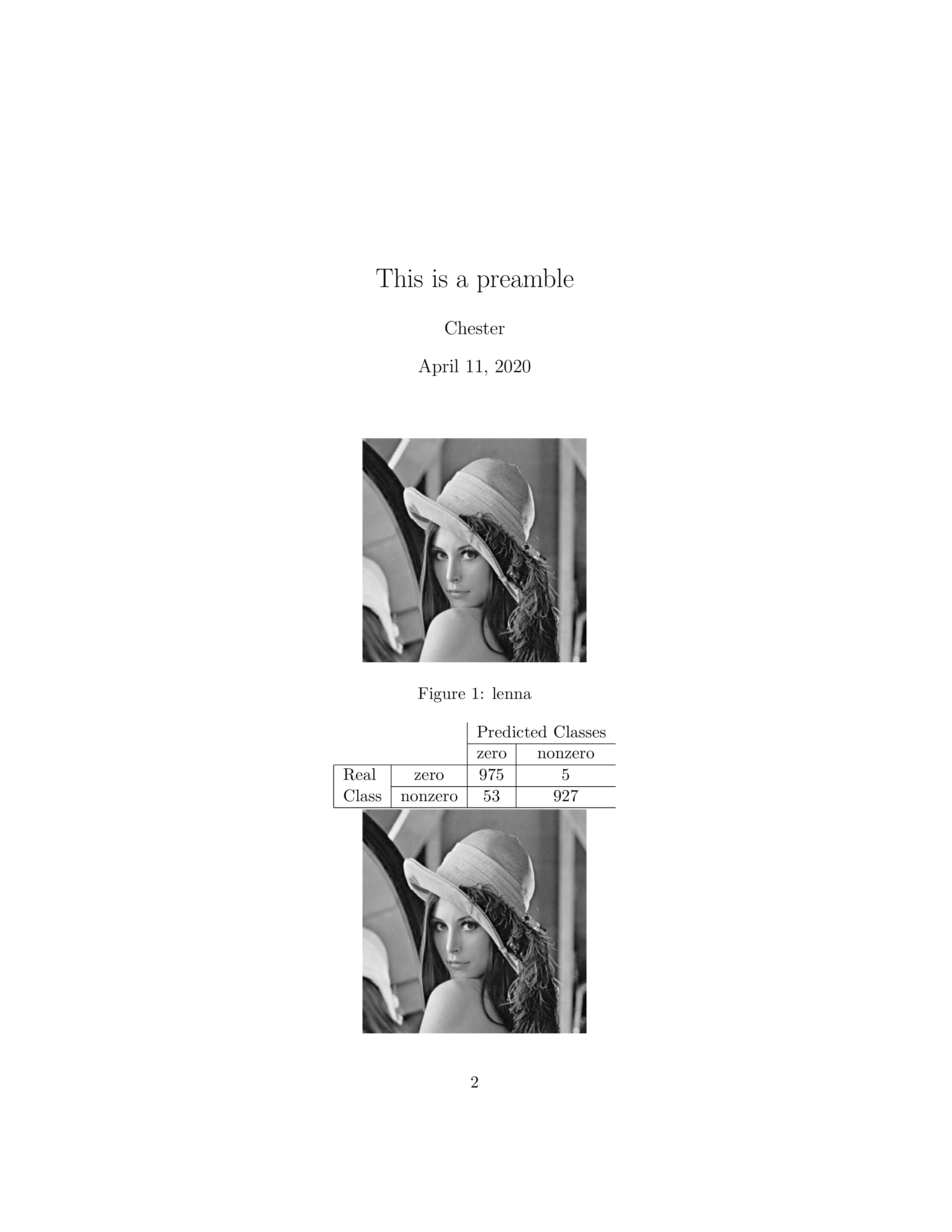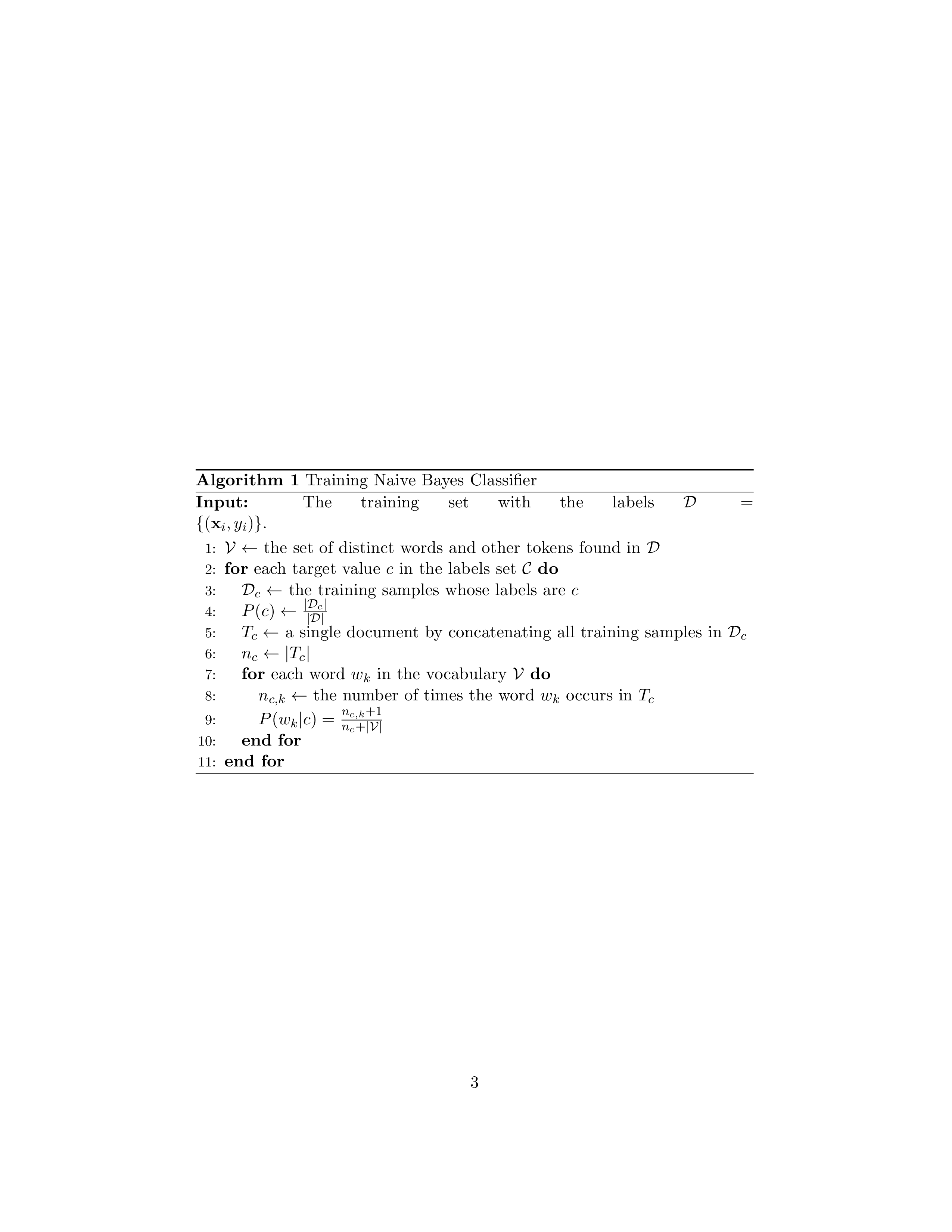1.displaymath 单行数学环境,不带编号。
egin{displaymath}
This is displaymath envirment. I don
't have a tag
end{displaymath}
2.equation 单行数学环境,全文按序编号。
egin{equation}
This is equation envirment. I have a tag
end{equation}
3.itemize 条目环境,按小圆点排列。
egin{itemize}
item This is
item itemize environment
end{itemize}
4.enmerate 枚举环境,按数字序号排列。
egin{enumerate}
item This is
item enumerate enviroment
end{enumerate}
5.quotation 引用环境,将输入看作纯文本,有大缩进。
egin{quotation}
This is quotation environment. I have big indent, and output plaintext.
end{quotation}
6.verbatim 复读环境,字体特殊,将输入看作纯文本。
egin{verbatim}
This is verbatim enviroment.I also output plaintext.
end{verbatim}
7.tabular 表格环境。
egin{tabular}{l|c|c}
Aloha&This is tabular environment & I can have many rows\
hline
I am BJ&Hello World &I love you\
&I can make multiple lines & I can even enter $int$
end{tabular}
其中{}框住的三个字母lcc表示表格有三列,l:本列左对齐,c:本列居中,r:本列右对齐。&符号分割表项,\换行,hline添加水平线。
8.description 描述环境,将输入看作纯文本。
egin{description}
item[This is describe environment.]
item[It seems cool.]
end{description}
9.matrix 矩阵环境,使用时要加载amsmath包,并用美元括住。编译器会将matrix看作数学符号处理。
$$
egin{matrix}
I& am& a\
Matrix& I& am\
seen& as& a symbol
end{matrix}
$$
10.table 浮动表格环境,浮动体位置更灵活。
egin{table}[hbt]
egin{tabular}{l|cc}
& I& just\
hline
& like & tabular\
& environment&but more complete
end{tabular}
caption{This is a floating table.}
end{table}
11.preamble 引言环境。
itle{This is a preamble}
author{Chester}
date{ oday}
maketitle
12.figure 图片环境。
egin{figure}[hbt]
centering
includegraphics{lenna.png}
caption{lenna}
end{figure
13.一个更灵活的图片环境,并且可以居中与缩放图片,需要graphicx包
{centeringincludegraphics[scale=0.85]{test.png}
}\ 注意这里必须要空一行,这和tex的对齐方式有关,留待日后
14.一个表格的实例,比较细节,含有合并单元格的操作,需要algorithm和algorithmic包
egin{tabular}{|l|c|c|c}
multicolumn{2}{}&&multicolumn{2}{|c}{Predicted Classes}\ cline{3-4}
multicolumn{2}{}&&multicolumn{1}{|c|}{zero }& nonzero\
hline
Real&zero&975&5\ cline{2-4}
Class&nonzero&53&927\ hline
end{tabular}\
15.一个伪代码的实例(Naive Bayes)
egin{algorithm}
caption{Training Naive Bayes Classifier}
label{alg:train_bayes}
extbf{Input:} The training set with the labels $mathcal{D}={(mathbf{x}_i,y_i)}.$
egin{algorithmic}[1]
STATE $mathcal{V}leftarrow$ the set of distinct words and other tokens found in $mathcal{D}$\
FOR{each target value $c$ in the labels set $mathcal{C}$}
STATE $mathcal{D}_cleftarrow$ the training samples whose labels are $c$\
STATE $P(c)leftarrowfrac{|mathcal{D}_c|}{|mathcal{D}|}$\
STATE $T_cleftarrow$ a single document by concatenating all training samples in $mathcal{D}_c$\
STATE $n_cleftarrow |T_c|$
FOR{each word $w_k$ in the vocabulary $mathcal{V}$}
STATE $n_{c,k}leftarrow$ the number of times the word $w_k$ occurs in $T_c$\
STATE $P(w_k|c)=frac{n_{c,k}+1}{n_c+|mathcal{V}|}$
ENDFOR
ENDFOR
end{algorithmic}
end{algorithm}


